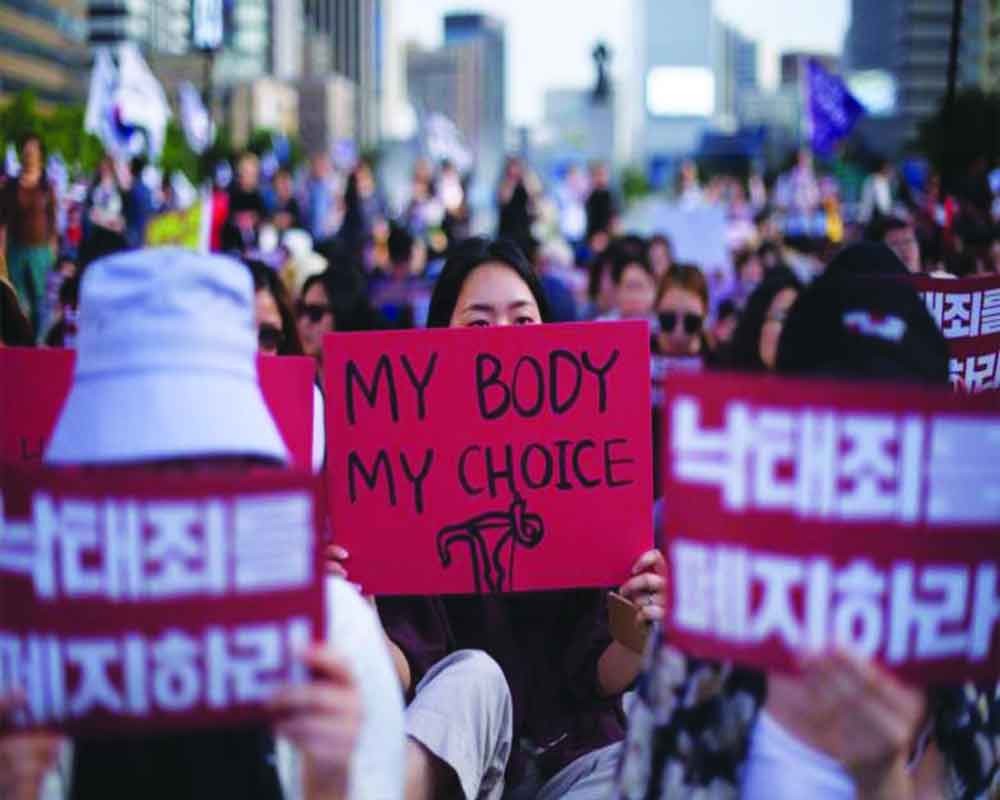Are we making our courts play doctors by delaying amendments to the MTP Act?
The all-too-familiar headline in the news these days is that of women or young girls seeking permission from courts to terminate unwanted pregnancies. Each time I see these headlines, I think of the unnecessary trauma they have to go through for a decision that should be theirs only. I am also reminded of the case of the 10-year-old, a case that shocked the world. The Supreme Court had denied her an abortion after she was sexually assaulted by two of her uncles. She then went on to give birth, while being convinced that she had a stone removed from her stomach.
This tragic case, however, is one of many pleas for abortion after the legal limit of 20 weeks which have come before the High Courts and the Supreme Court in recent years. Many of these cases are in my own home State — Maharashtra. Women usually approach the courts if their pregnancy is a result of rape or in cases where foetal abnormalities have been detected. In each of the cases highlighted in the media, the court appoints a medical board to provide an opinion on the feasibility or safety of an abortion. Based on the opinions of these medical boards, judgments have been delivered. In some cases, women have been granted relief. In others, they have been denied an abortion and have had to carry unwanted pregnancies to term.
Compounding an already traumatic experience, many women and young girls have faced public scrutiny with cases being reported in the media, borne legal expenses and been subjected to medical examinations by unfamiliar doctors.
Why is the 20-week gestation limit proving to be a challenge? In cases of foetal abnormalities, we must be cognizant of the advancing technology. Today, doctors can detect many more abnormalities after 20 weeks and the law must keep up with changing technology. At the same time, we must also recognise the trauma of rape survivors, especially young girls, who often do not realise that they are pregnant. Additionally, sexual assault and rape still carry a lot of shame and stigma in our country. For survivors, 20 weeks time sometimes is not enough to come forward and make the decision to terminate the pregnancy.
The need to reassess the gestation limit of 20 weeks in the MTP Act, amongst other limitations that are proving to be barriers for women accessing abortion services, was acknowledged and addressed in amendments to the law proposed by the Ministry of Health and Family Welfare in 2014. In cases of foetal abnormalities, the amendments would allow a termination at any point during the pregnancy. In cases of rapes, the amendments proposed to increase the gestation limit by four weeks — raising it to 24 weeks. Other amendments included making abortion available on request up to 12 weeks — thus making abortion the right of a woman — and doing away with the requirement of a second doctor’s opinion for second trimester pregnancies.
These amendments however, have been pending for over five years now, with little indication as to when they will be considered in Parliament and subsequently implemented — amendments that will make a significant impact on how women access safe abortion services and empower them to make decisions about their health and lives.
India is striving for women’s empowerment and gender equality. Sexual and reproductive decision-making and autonomy, including regarding abortion, is a critical aspect of this and is fundamental to a woman being able to actively participate in social, economic and political life. The Supreme Court, in a landmark judgment on right to privacy in 2017, recognised a woman’s fundamental right over her body and stated that the decision to continue a pregnancy or abort it falls in the realm of privacy. Is it not time that our law reflects this, and our courts enforce it?
I appeal to the Government and my fellow colleagues to prioritise the amendments to the MTP Act and urgently implement them to expand access to safe abortion in India. Until we do so, many women will continue to be compelled to go to court and we will continue to see headlines highlighting these cases. Until we empower the women in our country, we will not truly achieve reproductive justice or gender equality in India.
(The writer is a Rajya Sabha member from Maharashtra)

























